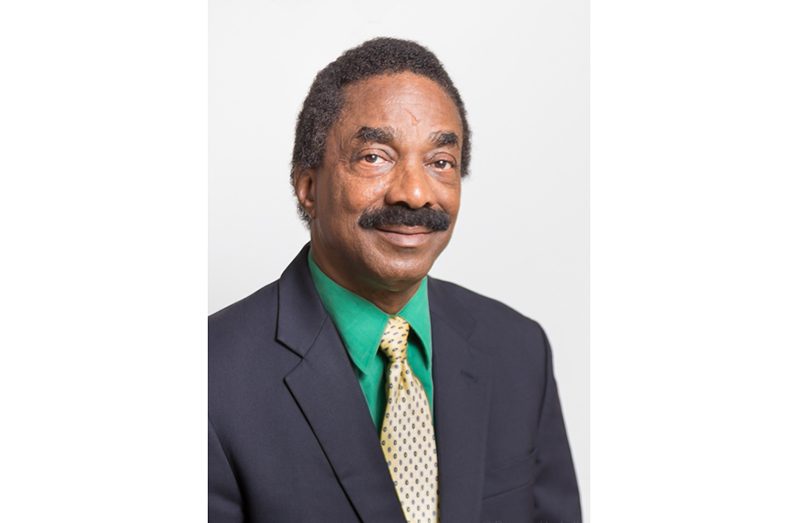-CCJ tells Basil Williams before dismissing his application
THE Caribbean Court of Justice (CCJ) on Tuesday threw out an application filed by Basil Williams, who served as Attorney General under the APNU+AFC coalition government.
Williams had moved to the CCJ seeking an extension of time to appeal and leave to appeal, so that he may challenge the decision of the Supreme Court of Judicature of Guyana ordering that he should remain a defendant in a defamation claim matter brought against him by former Deputy Solicitor General Prithima Kissoon, for words uttered and published while he held the office of the AG.
The Attorney General of Guyana and the Guyana National Newspapers Ltd (Guyana Chronicle) were also defendants in the defamation matter.
Williams reportedly believed that Kissoon was sympathetic to the opposition political party, and those sympathies led to her deliberately undermining court cases involving the Attorney General’s Chambers and the opposition.
After the Attorney General vs Jagdeo case, which was under Kissoon’s care and control, was dismissed, Williams ordered that she be removed from all political cases.
“According to Ms Kissoon, Mr. Williams abused and vilified her in the press. Ultimately, each of them published in the press their side of this sorry episode resulting in the proceedings,” the CCJ said in its ruling.
Williams was joined to the proceedings in his personal capacity as the first-named defendant. Williams objected to this and applied to the High Court to have the case struck out against him.
However, on April 9, 2019, the High Court dismissed Williams’ application but gave permission to Kissoon to amend her claim to add the office of the Attorney General as a third defendant, which she did.
However, on June 5, 2020, the Attorney General applied to the High Court for an order striking out the claim against Williams in his personal capacity.
It was contended that the joiner of Williams in his personal capacity breached the State Liability and Proceedings Act Cap 6:05 (‘the Act’).
The High Court granted this application and struck Williams out from the claim.
Dissatisfied, Kissoon appealed this decision to the Full Court of the Supreme Court of Justice, which consisted of three judges, one of whom was Kissoon’s brother-in-law.
The Full Court of the Supreme Court allowed Kissoon’s appeal and restored Williams as the first-named defendant in the proceedings.

The decision was delivered to the parties via email on March 31, 2021, but Williams alleged that the decision was emailed to an incorrect email address, therefore he did not learn of the decision until April 13, of that year.
This led to him filing an application for leave to appeal the decision of the Full Court to a judge of the Court of Appeal in chambers.
His application was out of time and so he also filed an application for an extension of time to lodge that appeal. The latter application was premised on the fact that the Full Court’s judgment had been sent to him at an incorrect email address.
A Court of Appeal judge sitting in chambers struck out his application on the basis that he (the appellate judge) did not have any jurisdiction.
Williams then approached a full panel of the Court of Appeal to review the decision of the single appellate judge.
On July 14, 2022, the full panel dismissed Williams’ application. The full panel found that Williams’ delay in making the application was neither slight nor inordinate, as the motion was filed almost seven weeks out of time.
Eventually, Williams applied to the CCJ for special leave to appeal the decision of the full panel of the Court of Appeal.
He argued that the court should restore the June 2020 order of the High Court by striking him from the claim in his personal capacity.
Both the Attorney General and GNNL respectively filed notices of non-opposition to Williams’ application.
The CCJ in its ruling said that “In light of these and other authorities, the court is of the view that nothing in the Act prevents an alleged wrongdoer employed by the State from being sued in their personal capacity for acts or omissions in the performance of their duties as agent or servant of the State.”
According to the CCJ, Williams may not have expressly couched his arguments in this way but, essentially, what he is claiming is that the Act has the effect of immunising him personally from suit on account of his then status as Attorney General.
“That is a fallacy. No one is above the law. It would be a remarkable thing for a court to hold that any office holder should be so immunised unless the Constitution clearly so prescribes, as it does in relation to the President while the latter holds that office.
“If a public official is vexed by the bringing of unmeritorious suits against them, the rules of court contain adequate provisions for the court summarily to strike out actions that are frivolous or that stand no realistic chance of success,” the CCJ said.
The court underscored that the purpose of the State Liability Act is not to immunise public servants from suit for alleged tortious acts, but to assure any person who is harmed by such acts, that the State will be liable for any damages awarded and that the public official will not personally have to pay.
As such, the Court found that the Full Court was “entitled and right” to restore Williams to the suit as a defendant in his personal capacity.
In dismissing the application, the CCJ said it found that Williams’s substantive appeal lacked merit.




.jpg)









